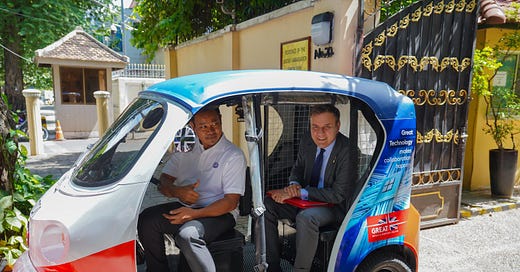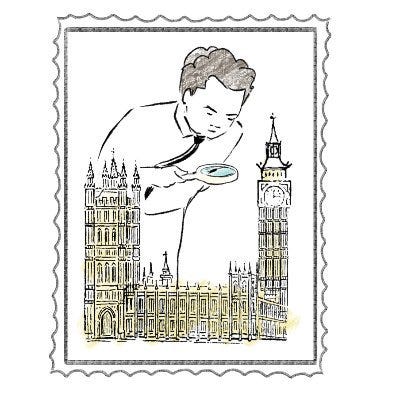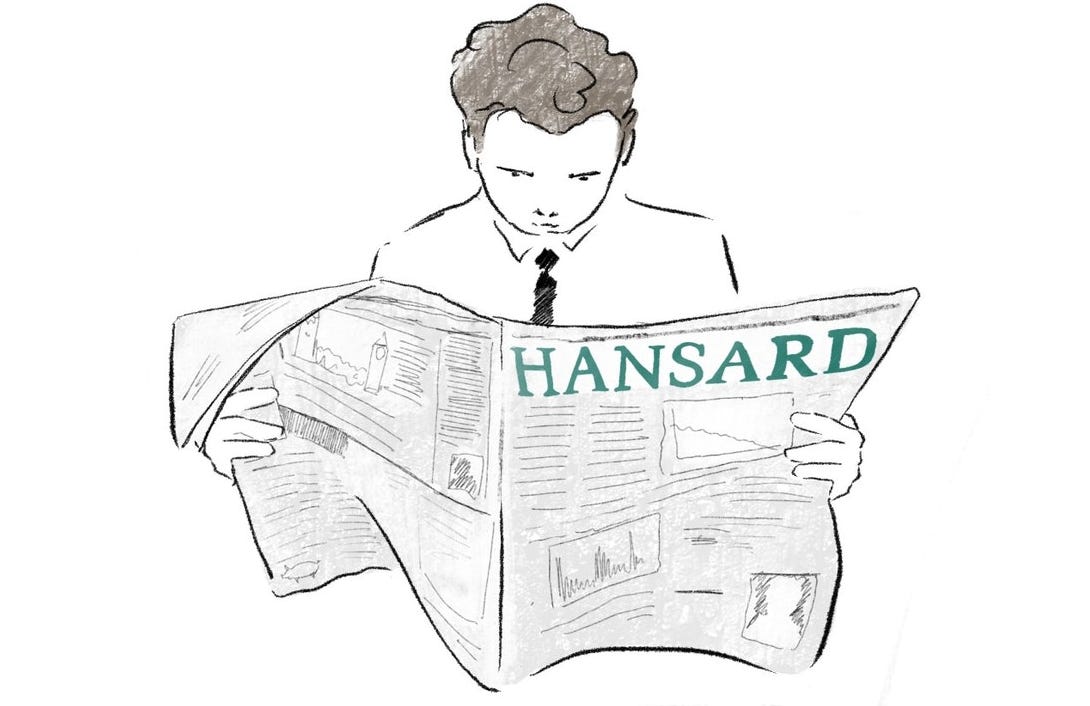Hello,
Next week, Britain’s Prime Minister, Rishi Sunak, may end up meeting with China’s General Secretary Xi Jinping on the sidelines of the G20 in Indonesia. The last time a British Prime Minister met Xi was in 2018, when Theresa May visited China. During the visit, Xi quoted Shakespeare, saying to May ‘What’s past is prologue,’ and the pair pledged to hold further discussions on how best they could cooperate on the Belt and Road initiative. They concluded their meeting by noting the “importance of having frank conversations in areas where the two countries do not see eye to eye.”
It has been a long four years. As Sunak flies to Bali, he may have his own vision for how he wants this relationship to progress, guided by economic pragmatism, the reality of recession at home, and the belief that Britain simply cannot afford to cut off the world’s production powerhouse. To this end, rumours circulate in Westminster that the Prime Minister will not classify China as an “official threat” in the upcoming Integrated Review refresh. But Sunak’s view of economic pragmatism is not one that many of his MPs subscribe to. Indeed, as we explore later in the briefing, this week alone one influential Conservative told the Telegraph “The reality is, whether we like it or not, we are in a form of warfare with China”, while others again called for the Government to publish a China Strategy. And from the opposition benches, Labour’s Shadow Foreign Secretary David Lammy (up to this point quiet on China) stirred from his slumber to press the Government on its fractured approach to Beijing. The large China hawk caucus in Parliament (and pockets of Government) is already looking for ways to turn the screws on the Prime Minister.
Sunak will find little respite from across the Atlantic. In his meeting with Xi, America’s President Joe Biden will be discussing “efforts to maintain and deepen lines of communication between the United States and the PRC, responsibly manage competition, and work together where our interests align”. His administration has been shock-briefing allies over what the economic impact of an invasion of Taiwan could look like (hint - not good), and some American analysts are reading this meeting as the first of the Cold War 2.0. They will disapprove of any signs that Sunak is prioritising the economy over security.
In today’s Briefing:
Minister visits Taiwan
Training Chinese officials
Stanley Johnson and the Foreign Office FOI
Scottish Mortgage Investment Trust reduces China exposure
What amendments should companies be aware of in the coming weeks?
It’s your writer’s birthday this week. Get 10% off your first year with Beijing to Britain by entering your details below.
Order! Order!
Some of the more eye-catching questions and tweets from Westminster dwellers this week
Siobhain McDonagh (Labour, IPAC) asked “the Secretary of State for Business, Energy and Industrial Strategy, whether the Government has made an assessment of the links between Kaifa Technology UK and the (a) China Electronics Corporation and (b) Chinese armed forces.”
Alex Stafford (Conservative, vice-chair - APPG for Critical Minerals) asked “the Secretary of State for Business, Energy and Industrial Strategy, what steps he is taking to ensure that existing contracts for critical minerals with the People’s Republic of China are honoured by that country.”
Politics
Taiwan and trade
Minister on tour
Greg Hands, the UK’s Trade Policy Minister (pictured above), has been in Taiwan this week for the first in-person trade talks since the pandemic began. The two-day visit saw the Minister meet President Tsai Ing-wen and a number of other senior officials, and co-host the 25th annual UK-Taiwan Trade Talks. Hands first visited the island as a spritely 25-year-old in 1991 (pub quiz fact: his brother worked for the Taipei Times for years), and in an article for The Times, pitched the reason for his fourth return as being twofold.
First, economic ties. Taiwan is “at the forefront of manufacturing technologies” and “with a GDP of more than $770 billion and strong economic growth”, “a growing destination for UK business and investment”, adding “we are one of the largest investors in Taiwan. Our thriving £8 billion trade partnership up 14 per cent in the past two years, with UK exports to Taiwan also increasing in that time.”
Second, geopolitics. “Our relationship is about more than cash. Strengthening UK ties with Taiwan is part of our post-Brexit tilt towards the Indo-Pacific, and will help us to future-proof our economy for many years to come.” Combining trade and foreign policy, the Minister explained “we will also future-proof our economy by securing our supply chains so businesses can acquire the materials they need. Taiwan is a key producer of semiconductors and electronic components…As global demand for Taiwanese chips and electronics increases, it’s vital we maintain our positive trading relationship.” In a separate statement, Hands said “Our relationship reaches beyond trade and investment as two groups of islands with strong democracies and institutions. We have much in common and face many challenges as like-minded partners.”
The Minister was also interviewed by Taiwan’s Commonwealth Magazine, explaining that the UK Government is “proposing an 'Indo-Pacific Tilt', which is not just a trade strategy, but a government-wide strategy. In other words, we are investing a significant amount of energy in operating and focusing on this region. We attach great importance to the Indo-Pacific region as a whole, and Taiwan is particularly important to the UK. Taiwan is a strong democratic society that believes in international rules and is a natural friend of the UK in the Indo-Pacific region, so the UK is happy to deepen its relationship with Taiwan.” He added that the UK could work with Taiwan on semiconductors and cloud internet storage, in addition to a number of other industries. In short, as we told Nikkei Asia, this is a trade visit. But the world of geopolitical rivalries is quickly morphing into one of geoeconomic superpowers. Trade is therefore also a powerful political tool.
The Government’s own press release added slightly more colour around the specifics of the trip. For example, in talks with Deputy Minister Chern-Chyi Chen, Hands discussed “tackling barriers to trade in sectors like fintech, food and drink and pharma, aimed at helping more UK firms export and invest in Taiwan.” And it was revealed that Innovate UK, the UK's national innovation agency, would sign a Memorandum of Understanding (MoU) with the Ministry of Economic Affairs in Taiwan, pledging to increase collaboration on technology and innovation.
From the Taiwanese side, Reuters reports President Tsai Ing-wen told Hands that the Government “attach[es] great importance to the British proposal to promote an enhanced trade partnership between Taiwan and Britain," and that "Our goal is to strengthen mutually beneficial economic and trade exchanges between Taiwan and Britain and we hope Taiwan and Britain will work together to promote the signing of bilateral investment and trade agreements." The Taipei Times added Tsia let Hands know that “Taiwan looks forward to working with the UK and other democratic states to build more resilient global supply chains through technological cooperation and mutual investments, as well as financial support.”
The Chinese Communist Party’s reaction was fairly muted. At a regular media briefing in Beijing on Wednesday reported on by The Guardian, the Chinese foreign ministry spokesperson, Zhao Lijian, said “We urge the British side … to stop any form of official exchanges with Taiwan and cease sending wrong signals to separatist forces for Taiwan independence.” “There is only one China in the world, and Taiwan is an inseparable part of China … The One China policy is the political foundation for developing Sino-British bilateral relations”. “We should also warn the Taiwan authorities that colluding with external forces to seek independence is doomed to fail.” No statement appeared on the Chinese Embassy’s website.
On the British side, Hands’ visit was praised by MPs, activists, policy formers alike. Tory MP Heather Wheeler tweeted “So pleased to see Minister Hands in Taiwan, hugely important market for UK PLC”. Chris Cash, the Director of the China Research Group, told The Times he was “delighted to see the government moving to deepen ties with a partner that continues to be a bastion for democracy in the face of increasingly hostile Chinese provocations. The UK and Taiwan have much to offer one another from a commercial standpoint, but the symbolic importance of Mr Hands’s trip won’t be lost on China Research Group MPs. This should mark the beginning of more frequent visits by British MPs and ministers, even if it provokes the ire of Beijing. Taiwan is not a geopolitical pawn — it’s vital that our leading lawmakers engage with Taiwanese perspectives and ask what Taiwan wants from us.” Luke de Pulford, IPAC’s coordinator, tweeted “Huge credit to @GregHands for this visit - he’s always been a strong supporter of Taiwan within the UK Government. Ministerial cooperation with Taiwan shouldn’t be controversial.” Interestingly, only one MP appeared to tweet a supportive statement of the trip.
After spending a handful of days in Taiwan, Hands moved on to Cambodia to attend the Second ASEAN Economic Ministers-UK Consultation. You can read the meeting statement here, but essentially those gathered discussed everything from medical supply chains to inward investment in the region. Notably, the group also “expressed its deep concerns on geopolitical tension and continued risks to global food and energy security, and rising inflationary pressure.”
Hands also went live with Channel News Asia, telling the programme’s news anchor that “ASEAN is a very important region for the UK”, and confirming the UK’s CPTPP application is “very much on track.” Interestingly, the anchor asked Hands to clarify the UK’s approach to China, noting the recent change in mood. The Minister responded that “our Government policy on China is unchanged, we have a constructive relationship, we are right on the front foot of criticising China..for its practises in Hong Kong, in Xinjiang as well…while recognising we can have a relationship with China…I thought it was important to be in Taiwan, to show our support for Taiwan.” He was then pushed on if it was possible for the UK to engage with Taiwan while minimising gestures that “may trigger China.” Hands swerved the question, noting that that “the UK and Taiwan are natural partners.” This was a theme he touched on in an earlier interview while in Taiwan, where he stated “The UK is very supportive of democratic and human rights values, so there has been some friction with China in recent years, but that will not stop us developing a trade relationship with China, as long as we can protect our own values in that relationship.”







